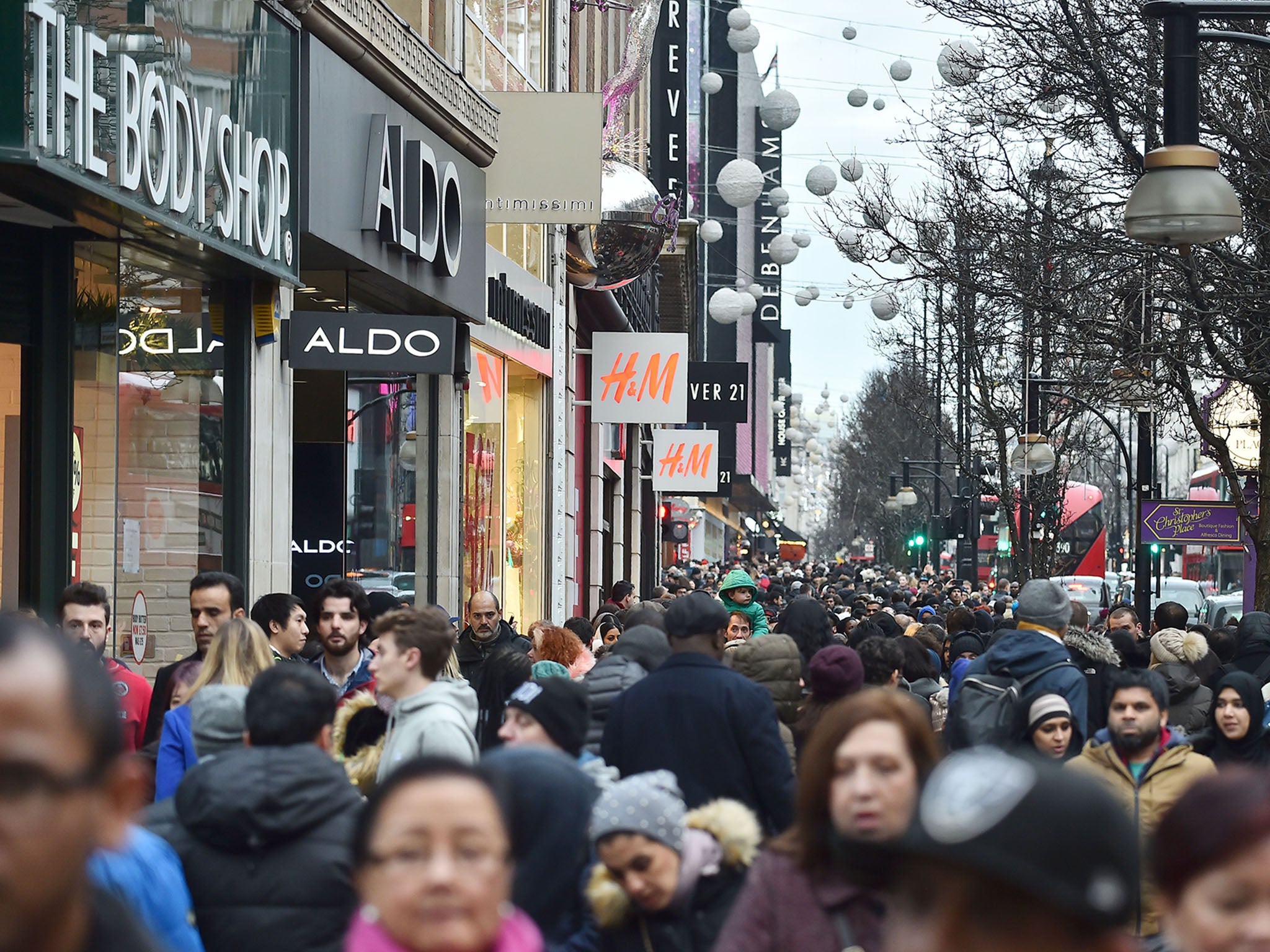UK retail sales slump to way below forecasts as inflation and Brexit bite
On three-month basis, growth rate to end of January was lowest since last April

Retail sales across the UK significantly undershot expectations in January, underscoring the extent to which shoppers are still feeling squeezed by high inflation and stagnant wage growth ahead of Brexit.
By volume, retail sales rose 0.1 per cent in January compared to the previous month. Analysts polled by Reuters had expected an increase of 0.5 per cent. When compared to January 2017, sales were up by 1.6 per cent.
The Office for National Statistics (ONS) pointed out that the growth rate in the three months to the end of January – a measure that strips out some month-to-month volatility – was the lowest since last April with food sales particularly declining.
The pound fell dramatically in the immediate aftermath of June 2016’s Brexit vote, feeding through to a sharp rise in inflation which in turn dealt a blow to savers and retailers. A dip in consumer spending power also meant that the UK’s broader economy underperformed many of its European counterparts over the last year.
The 19 countries that share the euro enjoyed GDP growth of 2.5 per cent in 2017 – the fastest growth rate since the 3 per cent recorded back in 2007. A first official estimate in January showed the UK economy, by contrast, expanded by just 1.8 per cent over the period.
“Looking ahead, we should expect the squeeze on consumer spending from high inflation to ease as we progress through this year. But the economic benefits of lower inflation are unlikely to be felt until the second half of 2018 at the earliest,” said Andrew Sentance, a former member of the Bank of England’s Monetary Policy Committee who is now senior economic adviser at PwC.
“The first half of this year will continue to be a difficult environment for retailers and other consumer-facing sectors,” he added.
Retail sales volumes also dropped steeply in December with analysts saying that many shoppers had decided to bring big purchases forward to November to capitalise on Black Friday sales promotions.
Food sales in January dropped by 0.9 per cent in volume terms compared with the same month a year earlier, which represented the biggest fall since October.
The ONS said that sales of sporting equipment, including gym wear, were resilient, but that this was offset by that drop across food.
UK inflation was 3 per cent in January, unchanged from December and down from 3.1 per cent in November.
The Office for Budget Responsibility has forecast UK growth this year to slow to 1.4 per cent and 1.3 per cent in 2019 reflecting weaker household consumption.
Join our commenting forum
Join thought-provoking conversations, follow other Independent readers and see their replies
Comments
Bookmark popover
Removed from bookmarks